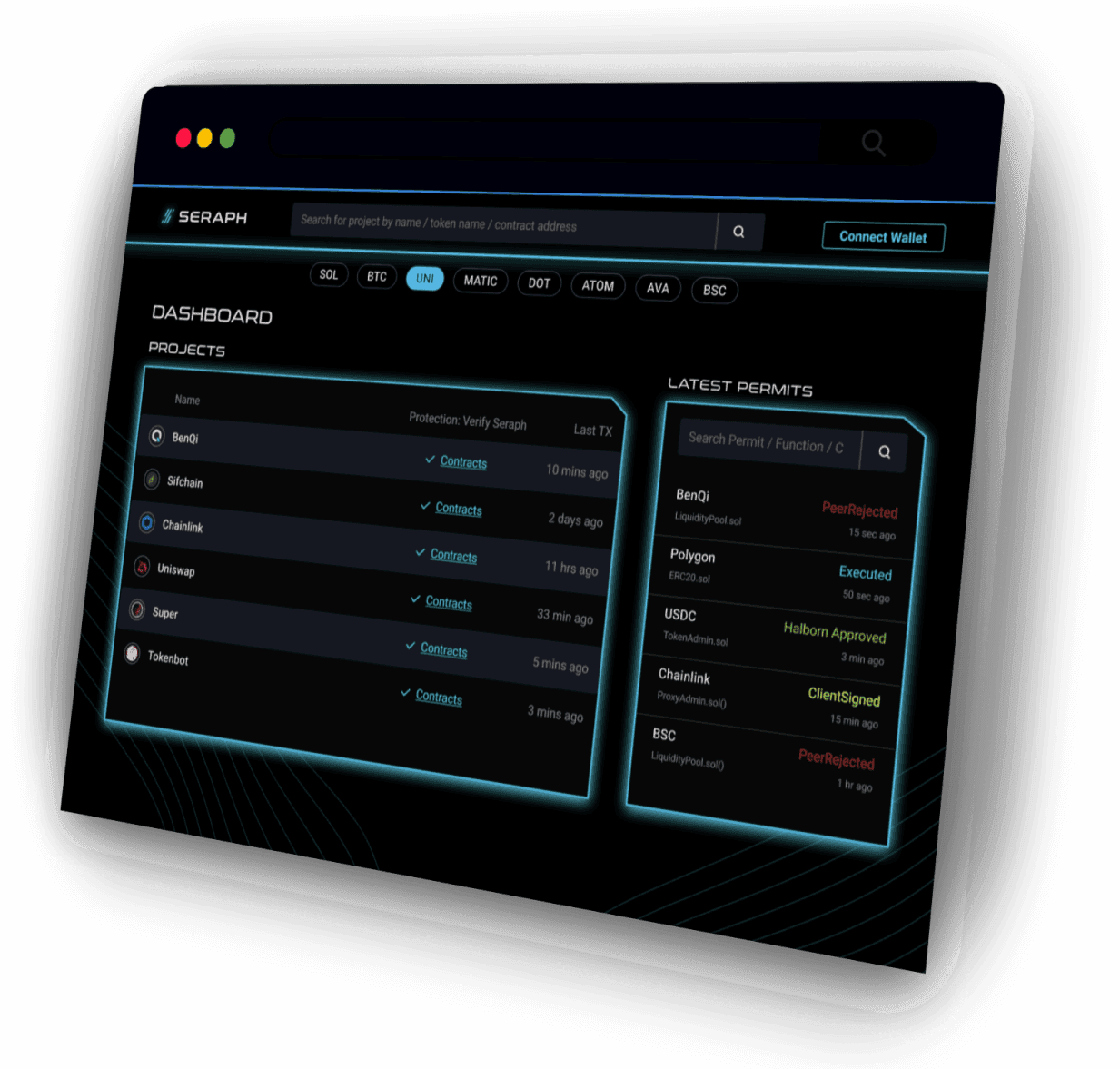
Protection On:
What is A Blockchain Security Notary?
A cybersecurity professional who serves an organization (centralized or decentralized) as a 3rd party witness to the signing of important on-chain actions.
The main reason?
To deter fraud.
How Seraph works
Our technology protects your protocol’s most important or threatening smart contract functions.
When functions are called, it requires authorization from a trusted Blockchain Security Notary.
If permitted, the transaction is written to chain.
Why Seraph?
Reason #1
Users of web3 platforms have been plagued with rug pulls, frauds and lack of transparency around private key ownership of teams.
Reason #2
Operators of both centralized and decentralized organizations seek ways to increase protocol security, increase user trust, and decrease custody risk.
Organizations onboarding with Seraph
Step 1
Organizations choose an interface and modifier
Step 2
Add ~5 lines of code to your smart contract for each protected function
Step 3
Your dedicated implementation manager works with your org to build your runbook. This defines the rules and circumstances to permit or deny your protected functions.
Step 4
Contract owners interact on Seraph’s front-end dashboard (no command line or code needed!)